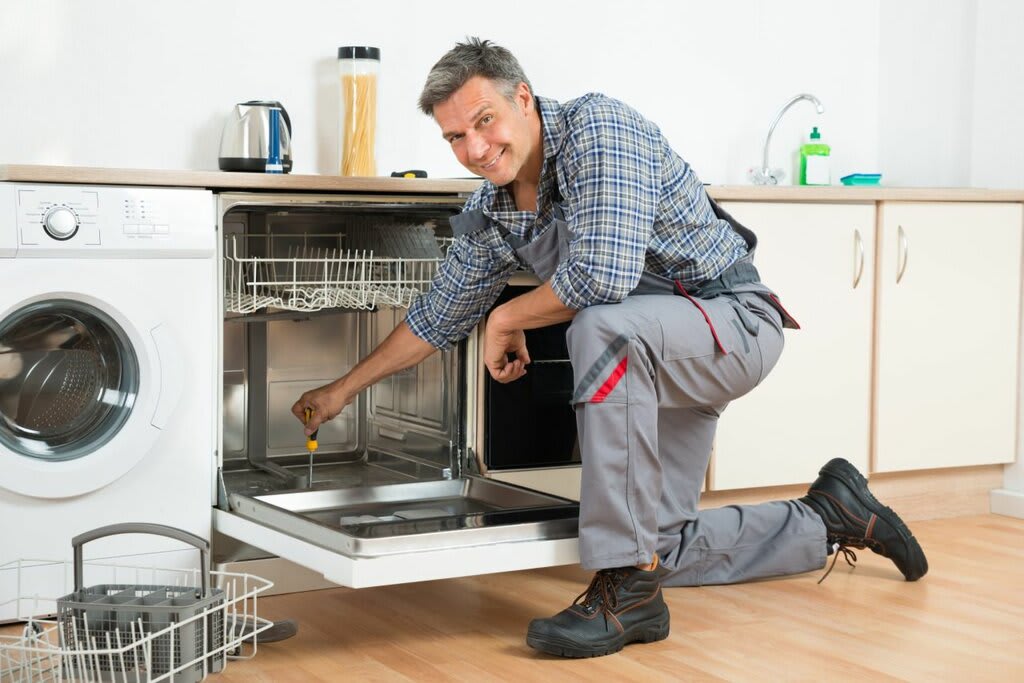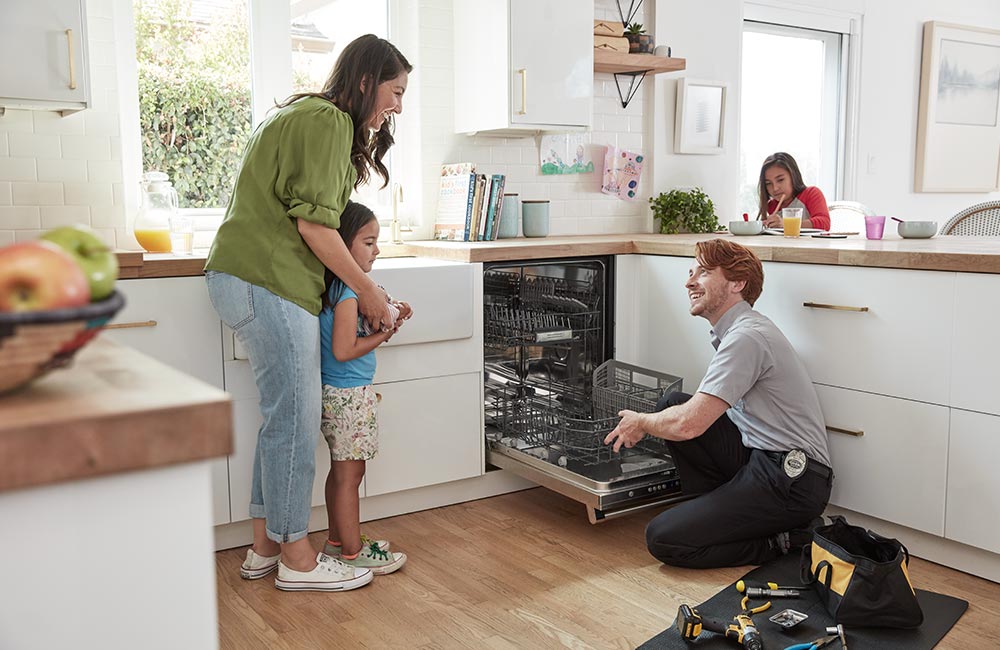When to DIY vs. Call a Pro – Fixes washers and dryers Oro valley Dependable Appliance Repair
When to DIY vs. Call a Pro – Fixes washers and dryers Oro valley Dependable Appliance Repair
Blog Article
The Ultimate Overview to Understanding Appliance Repair in your home
When your fridge quits cooling or your stove refuses to warmth, it can really feel overwhelming. Understanding home appliance fixing in the house can conserve you time and cash. You'll learn to acknowledge signs and symptoms, use vital devices, and comply with a methodical troubleshooting process. Before you start, there are essential safety precautions you require to take right into account. What are the most usual problems, and just how can you fix them? Let's discover the fundamentals.
Common Appliance Problems and Their Symptoms
When your home appliances start breaking down, it's necessary to recognize the indicators beforehand. Neglecting them can lead to bigger concerns and costly fixings. If your fridge isn't cooling effectively, you could see warm spots or condensation forming. This might suggest a failing compressor or an obstructed vent.Your dish washer may reveal issues via dirty meals or uncommon sounds during cycles. If you listen to grinding or clanking, it's time to investigate.A cleaning maker that will not spin or drain pipes can leave you with soggy laundry, suggesting a stopped up drain or a malfunctioning pump.Lastly, if your stove's temperature appears off or it takes permanently to preheat, you could be managing a defective thermostat. By remaining sharp to these signs, you can address problems prior to they rise right into major fixings.
Vital Devices for Appliance Repair Work
When you're tackling appliance repair services in your home, having the right devices is vital. Standard hand devices like screwdrivers and pliers will certainly aid you disassemble and fix different devices, while electric screening tools assure you're working securely with electrical wiring. Let's go over what you require to get going on your fixing trip.
Standard Hand Tools
Having the right devices is necessary for reliable home appliance repair service in your home. Begin with a trustworthy screwdriver collection, consisting of both flathead and Phillips types, as screws are common in device setting up. Pliers are likewise crucial; they aid with gripping, twisting, and cutting cables or tiny parts. A set of needle-nose pliers can reach tight areas quickly. You'll need an excellent flexible wrench for tightening or loosening up nuts and bolts. An energy knife is handy for puncturing packaging or insulation. Do not fail to remember a tough workbench or surface to safely arrange your devices and components. With these standard hand tools, you'll be well-prepared to take on most home appliance repairs that come your means.
Electrical Screening Instruments
Alongside basic hand tools, electrical testing tools play an important function in appliance repair. These tools aid you identify electrical concerns and warranty devices operate securely. A multimeter is vital; it gauges voltage, existing, and resistance, allowing you to determine issues swiftly. A non-contact voltage tester is another must-have, letting you spot real-time cables without making direct call, enhancing your safety and security. Clamp meters are excellent for determining existing flow in cables without disconnecting them, conserving you time and effort. In addition, circuit testers can rapidly check if outlets are functioning effectively. By using these devices, you'll improve your troubleshooting procedure and enhance your fixing abilities, making appliance maintenance a lot less complicated.
Step-by-Step Overview to Diagnosing Appliance Issues
When your appliance acts up, it can be frustrating, but diagnosing the problem does not need to be frustrating. You'll discover to identify usual troubles and apply efficient repairing strategies. Allow's walk via the steps to obtain your appliance back in working order.
Usual Home Appliance Problems

Repairing Methods Described

Repairing Significant Cooking Area Appliances: A Closer Look
Have you ever wondered exactly how to deal with usual concerns with your kitchen area appliances? Fixing major kitchen area home appliances like fridges, stoves, and dishwashing machines can be easier than you assume. Beginning by identifying the problem-- whether it's a refrigerator not cooling or an oven that will not warm. Frequently, a basic reset or checking the power source can address the issue.For fridges, tidy the condenser coils and check the door seals. If your oven's not heating, inspect the home heating aspect and thermostat. Dishwashing machines might just require a tidy filter or a reset to obtain them back at work. Constantly unplug the appliance prior to diving right into repairs to assure your safety.Don' t fail to remember to seek advice from the individual guidebook for certain troubleshooting suggestions associated to your design. With a little bit of perseverance and the right tools, you can with confidence take on device repairs and save money in the process!

Repairing Washing Equipments: Tips and Techniques
When your laundry devices begin breaking down, it can really feel overwhelming, but troubleshooting them doesn't need to be an inconvenience. Begin by inspecting the power supply. Validate the home appliance is plugged in and the outlet is operating. Next off, check the door or cover switch; a malfunctioning button can prevent the machine from operating.For washing machines, if it's not rotating, look for unbalanced tons. Redistributing the garments might resolve the issue. If your dryer isn't home heating, tidy the lint filter and check the vent for blockages.Listen for uncommon sounds; they can show a problem. If your appliance is dripping, examine the hoses for splits or loosened connections. Paper any kind of error codes shown on electronic displays, as they can assist you in recognizing the issue. Get in touch with the individual manual for details fixing ideas associated to your design.
Safety And Security Preventative Measures to Take During Services
Before you start any kind of appliance repair work, it's vital to prioritize safety to stop mishaps or injuries. First, unplug the home appliance or transform off the check here breaker to assure no power reaches it while you function. Use shielded devices to minimize the risk of electrical shock. Put on safety goggles and gloves to secure on your own from sharp sides or debris (Dependable Refrigeration & Appliance Repair Service Washing Machine Repair).Make specific your workspace is clean and well-lit, so you can see what you're doing. Maintain youngsters and pets far from the location to avoid disturbances and prospective risks. If you're managing gas devices, be additional cautious; check for leaks prior to proceeding.Take your time, and do not hurry with repair services. If you feel unpredictable regarding any type of action, it's better to stop briefly and study than to think. Adhering to these safety measures will help produce a safer atmosphere for your DIY home appliance repair work job
When to Call an Expert for Help
Just how do you know if it's time to call a professional for device repair work? If you've attempted standard troubleshooting without success, it's a clear indicator. If your home appliance still won't start or reveals uncommon noises after resetting it, don't hesitate to look for specialist help.When you notice leaks, smoke, or burning scents, prioritize safety and security and call a pro instantly. These problems can cause even more significant damage or position dangers to your home.Also, if your device is under service warranty, contacting an expert is commonly the ideal path. They can ensure that fixings won't nullify your service warranty, saving you money in the lengthy run.Finally, if you're not sure or unpleasant with complex fixings, it's wise to leave it to the experts. Remember, taking on complicated issues without the right proficiency can bring about expensive blunders. Count on a professional when doubtful!
Regularly Asked Questions
Just How Can I Prevent Appliance Issues in the Future?
To avoid home appliance issues in the future, you should execute routine upkeep, check for wear and tear, tidy filters, and avoid overloading. Staying proactive will certainly aid expand their life-span and keep them running efficiently.
What Are the Many Common DIY Appliance Repair Service Mistakes?
You might neglect safety precautions, skip fixing steps, or use wrong devices when attempting do it yourself home appliance repair services. Rushing the procedure or overlooking supplier standards can cause more considerable concerns and expensive errors. Stay client and informed!
How Do I Know if a Part Demands Replacement?
You can inform if a part needs replacement by examining for unusual noises, leaks, or irregular efficiency. If the home appliance has a hard time to operate appropriately or shows noticeable damages, it's most likely time for a replacement.
Can I Utilize Generic Components for Appliance Services?
Yes, you can utilize common parts for home appliance repair services, however identify they're suitable - Dependable Refrigeration & Appliance Repair Service Washing Machine Repair. Common parts could conserve you money, but they could influence performance or longevity, so weigh your choices very carefully prior to making a choice
What Warranties Cover Home Appliance Services?
Most home appliance warranties cover repair work for manufacturing problems, however they typically leave out damages from misuse. Examine your warranty terms thoroughly, as some might need utilizing qualified service technicians and initial components for coverage to continue to be legitimate.
Report this page